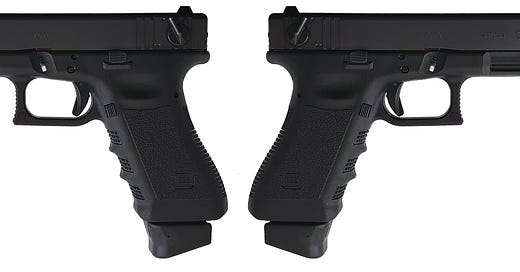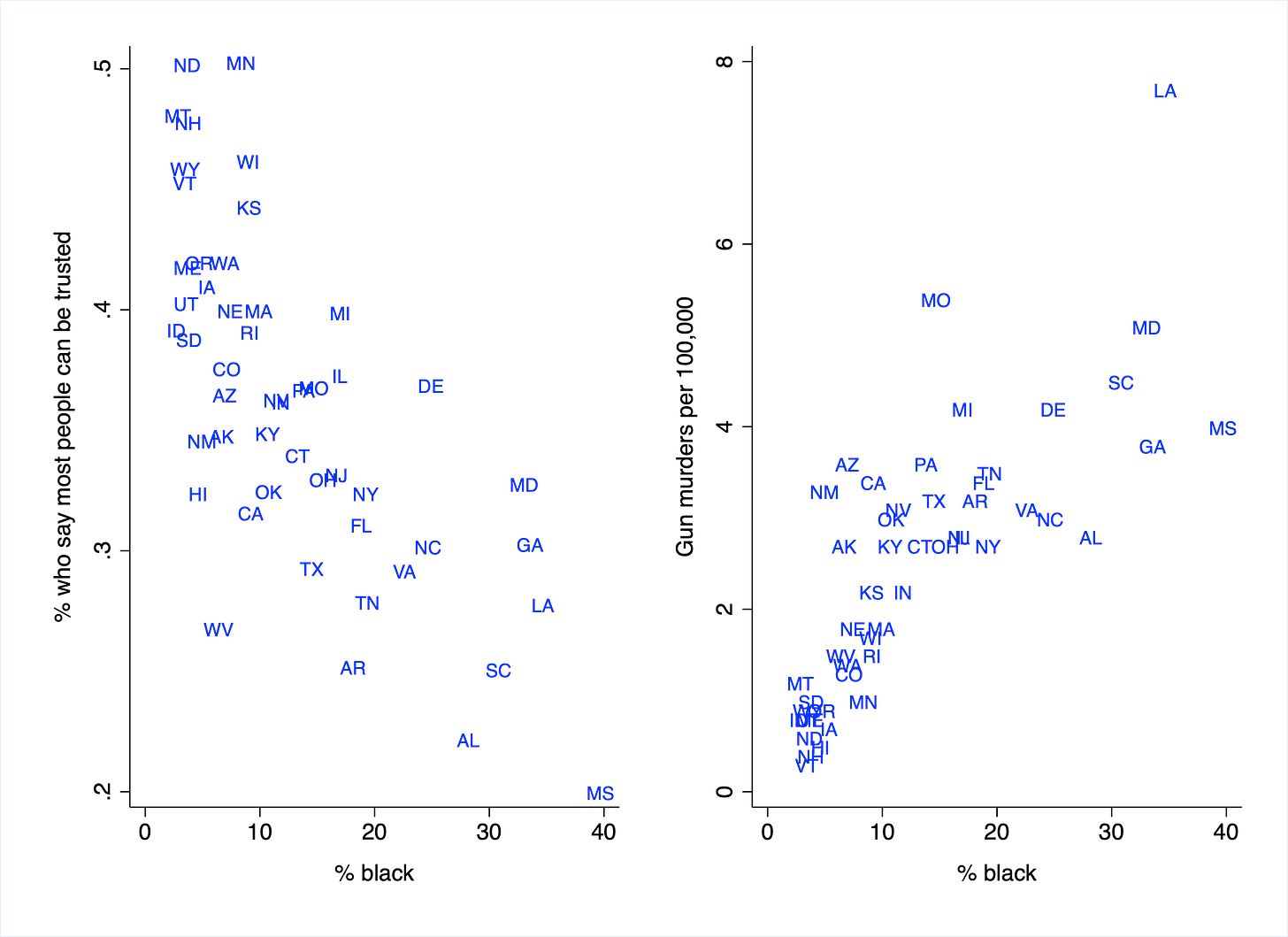John Burn-Murdoch is one of the UK’s best data journalists, having produced dozens of great visualisations in his role as chief data reporter at the FT. Which makes his latest article on gun violence in the US something of an outlier.
Burn-Murdoch claims that “trust plays a significant role in helping to drive gun violence”. To support this claim, he presents a chart showing a strong positive association between interpersonal trust and the gun homicide rate across US states. It’s the third from the left:

When he combines his measure of interpersonal trust with a measure of gun ownership, the resulting “score” is strongly associated with the gun homicide rate (final chart above). This leads him to conclude: “it’s the interplay between guns and fear that sends homicide rates climbing”.
Incidentally, interpersonal trust seems to be doing most of the explanatory work here. As Twitter user AnechoicMedia points out, the bivariate relationship between gun ownership and gun homicide rate is non-significant. Though to be fair to Burn-Murdoch, he states in the article that the relationship is “weak”.
But does trust really play “a significant role” in gun violence?
It’s long been known that black Americans report substantially lower trust than white Americans. We also know that black Americans are disproportionately involved in gun violence. I therefore checked whether the association between trust and gun violence is confounded by the black share of the population.
Data on gun murder rate were taken from here. Data on trust were taken from here. And data on the black share of the population were taken from here. The specific measure of trust used was the percentage of the population who say that “most people can be trusted” (as opposed to “it depends” or “you can’t be too careful”) – taken from the General Social Survey. This is known in the literature as “generalised trust”.
Now, the measure is from 2000 – whereas the measures of gun murder rate and black share of the population are from 2010. Which means it could be somewhat “out of date”. However, the authors of the paper from which I obtained the measure also reported values for 1980, and these were correlated at r = .97 with the ones for 2000. So the cross-state differences are highly stable over time.
I also double-checked the effect of race on trust at the individual-level using the General Social Survey. In a weighted model controlling for age, sex and year, blacks were 24 percentage points less likely than whites to say “most people can be trusted” – a large effect.
Returning to the state-level, the charts below plot % black against trust (left) and the gun murder rate (right). As you can see, % black has a strong negative association with trust and a strong positive association with the gun murder rate.
To see whether % black explains the relationship between trust and the gun murder rate, we need to run simple multivariate models. Results are shown below. The first three models exclude Washington D.C., while the last three models include Washington D.C.
Trust’s strong negative association with the gun murder rate becomes weak and non-significant when % black is included in the model. What’s more, adding trust to a model that already includes % black increases the variance explained by only 1 percentage point. % black is the most important predictor, single-handedly explaining 60–66% of the variance.
Incidentally, Burn-Murdoch and I may have used different measures of trust. His x-axis says “% who do not trust people in neighbourhood”, whereas the generalised trust question refers to “most people”. So I can’t rule out that his measure is associated with the gun murder rate even after controlling for % black, though it seems unlikely.
I also tested for an interaction between gun ownership and trust, but it was non-significant when controlling for % black.
My analysis finds no evidence that trust plays “a significant role” in gun violence. Rather, trust is confounded by the black share of the population; black Americans being disproportionately involved in gun violence.
Image: Glock 18C, 2018
Thanks for reading. If you found this newsletter useful, please share it with your friends. And please consider subscribing if you haven’t done so already.







Excellent, thank you.